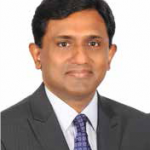
Traditional, complementary, and integrative medicine plays a crucial role in the health and well-being of millions across the world. In some Asian and African countries, a significant portion of the population relies on traditional medicine for primary healthcare. Meanwhile, in many developed countries, 70-80% of the population have utilised forms of alternative or complementary medicine such as acupuncture and remedial massages. Notably, many modern drugs and vaccines are derived from natural resources and traditional knowledge.
The eleventh revision of the International Classification of Diseases (ICD-11), a global standard for recording health information and causes of death, has been released. Developed and updated annually by the World Health Organisation (WHO), ICD-11 now includes a module on traditional Indian systems of medicine.
READ | India’s rooftop solar revolution: Illuminating a sustainable future
ICD serves as the global standard for diagnostic health information. Another important tool is the Diagnostic and Statistical Manual of Mental Disorders (DSM-5), published by the American Psychiatric Association.
The latest revision of ICD introduces a module on Indian Traditional Medicine (ICD11 TM2). It incorporates data and terminology for diseases based on Ayurveda, Siddha, and Unani Medicine into the WHO ICD-11 classification.
The new ICD11 module includes terminology defining diseases in Ayurveda, Unani, and Siddha Medicine, indexing them with codes in the WHO Disease Classification Series ICD-11. Previously, the term traditional medicine in module 1 referred exclusively to the Chinese system of medicine.
Aligning with the WHO’s strategy for Traditional Medicine (2025-2034), including traditional medical terminologies in ICD-11 bridges traditional medicine with global standards. The inclusion of TM Module 2 in ICD-11 signifies a major step toward the global recognition of traditional medicine.
The WHO defines traditional medicine as the total knowledge, skills, and practices based on the theories, beliefs, and experiences indigenous to different cultures, used in maintaining health and treating physical and mental illnesses.
According to the World Intellectual Property Organisation (WIPO), ‘traditional’ means the knowledge reflects community traditions, often inter-generational, collectively created, and held. Thus, ‘traditional’ does not necessarily mean ‘old’, but relates to the methods of creation, preservation, and transmission.
Traditional knowledge is typically the collective heritage of indigenous peoples or local communities. It is rooted in the community’s collective heritage, with innovations regarded as community-held.
The Government of India has established a separate ministry, AYUSH, to promote traditional medicine. This acronym stands for Ayurveda, Yoga and Naturopathy, Unani, Siddha, and Homeopathy, representing six systems of medicine practiced in India and some neighbouring Asian countries.
In collaboration with WHO, the Ministry of AYUSH has classified diseases used in Ayurveda, Siddha, and Unani systems under the TM-2 module of the ICD-11 series. This initiative is part of a series of agreements between WHO and the Government of India to promote TCIs.
This partnership aims to globalise evidence-informed TCI practices and mainstream them in national health systems, contributing to universal health coverage and well-being, goals of the Global Sustainable Development Goals.
In August 2023, the WHO Global Centre for Traditional Medicine was established in Gujarat, India. This centre develops key benchmark documents and standardised terminologies to enhance traditional medicine systems’ acceptability and credibility.
The Ministry of Ayush plans to develop a public health strategy based on ICD-11, Module 2, for national and international implementation. The National Rural Health
Mission (NRHM) initiated in 2005 emphasised “Mainstreaming of AYUSH and Revitalisation of Local Health Traditions” by utilising the untapped AYUSH workforce, therapeutics, and principles for community health management.
The inclusion of Traditional Medicine, specifically Traditional Chinese Medicine (TCM), and the Indian systems of Medicine in the 11th revision of the International Statistical Classification of Diseases and Related Health Problems (ICD-11) marks a significant advancement. It reflects a greater acknowledgement of traditional, complementary, and integrative Medicine (TCI), impacting healthcare systems, standardisation, integration, and Electronic Health Record (EHR) systems.
This inclusion enables statistical data coverage beyond Western Medicine, reflecting the true nature of healthcare systems among WHO member states. It signifies the recognition of TCM, meeting member state needs, and fostering the integration of TCM with Western Medicine. This development is expected to stimulate further research, education, adoption, and global recognition of TCM.
The integration of TCM in ICD-11 aligns with medical pluralism and global healthcare reform. It extends TCM’s global reach and integrates it with various Western medicine-based disciplines.
By including Traditional Medicine in the ICD, international standardisation is achievable, allowing for consistent measuring, counting, comparing, and monitoring. ICD-11 now enables users to integrate the coding of diagnostic concepts from both Traditional Medicine and Western Medicine. This may also expand medical insurance coverage for care through TCM, previously focused on Western medicines.
The eleventh revision of ICD, with the inclusion of Indian and Chinese traditional systems, represents a significant step towards an efficient blend of traditional and conventional Medicine. It aligns with the vision of health promotion and disease prevention and can be seen as a step towards the decolonisation of global public health.
However, challenges in governing medical pluralism persist. Beyond officially recognised traditional systems, there exists a legitimate body of knowledge. There is a need for ‘Integrated Health Governance’, which addresses the institutionalisation of health laws that reflect empirical trends and a theory of democratic health governance. This would promote an interactive and interdependent relationship between the state, health professionals from multiple paradigms, consumers, and relevant non-state actors.
Dr Joe Thomas is Global Public Health Chair at Sustainable Policy Solutions Foundation, a policy think tank based in New Delhi. He is also Professor of Public Health at Institute of Health and Management, Victoria, Australia. Opinions expressed in this article are personal.

